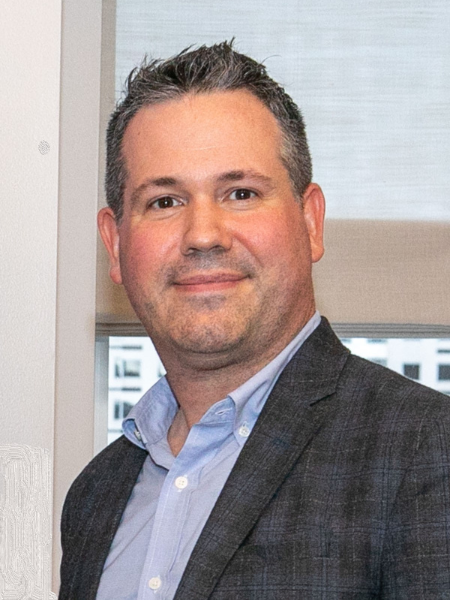ACLS Community Message for November 2023

Fall is the season that reminds all of us at ACLS of the vibrant diversity of scholarship in the humanities and social sciences. In just the past month, we have processed more than 2,000 applications for research support with many more expected to come before this competition year ends. As my colleagues and I dive into this pool of proposals from scholars, representing all fields of humanistic inquiry, we regularly share our impressions of emerging currents in scholarship and research methodologies, in publishing and scholarly communications, in faculty working conditions, and even in modes of grant-writing.
The overwhelming feeling is inspiration. The quality of scholarship remains high, even as many scholars today are pursuing their work in the face of persistent political, cultural, and institutional antagonism. At ACLS, we know society would be poorer without a research enterprise that is consistently refreshed, promotes new understanding of history and society, provides the basis for liberatory thinking, and explores the human dimensions of problems like climate change, economic inequality, and institutional racism. Without external support, many scholars could not complete and disseminate their research. We cannot afford to step back from our commitment to this work.
We also know that the humanities and interpretive social sciences cannot flourish unless they include and respect the diversity of scholars representing different backgrounds, experiences, and perspectives. We must ask, at every turn: Who is at the table? Which perspectives inform our program design choices? Who are the reviewers in our selection committees making the decisions about where funding is directed? Which scholars and institutions are represented in our application pools and lists of awardees? And who is missing?
Last month, ACLS convened 90 representatives of our Mellon/ACLS Community College Faculty Fellowship Program (CCFF), which ran from 2019 to 2022 and named more than 100 fellows teaching at two-year colleges across the country, thanks to the support of the Mellon Foundation. Amid dozens of presentations of innovative scholarship, community-engaged and student-centered research, and creative approaches to humanities pedagogy, the meeting participants reflected on the conditions for research on their campuses and how funders could better meet them where they are: carrying high teaching responsibilities and with limited access to institutional infrastructure for sponsored research.
With faculty from community colleges and other teaching-intensive schools “at the table,” might funders and selection committees be better equipped to understand what kinds of work faculty from access-oriented institutions are uniquely poised to accomplish?
Though the fellows offered frank assessments of the daunting barriers to access, my colleagues and I were equally inspired by the creative and solutions-oriented thinking of the group. With faculty from community colleges and other teaching-intensive schools “at the table,” might funders and selection committees be better equipped to understand what kinds of work faculty from access-oriented institutions are uniquely poised to accomplish? And what research and teaching experiences do these scholars bring to their work—from the traditional scholarly monograph to collaborative knowledge creation in their local communities—and how are their fields of study enriched by it? We look forward to highlighting the innovative work of CCFF awardees in the coming years, and to working closely with them as we pursue new programming that can support the research ambitions of community college faculty.
That work enriches all of ACLS’s programs. ACLS’s experience with the CCFF program was foundational to the development of our new ACLS HBCU Faculty Fellowship and Grant Program, which carries forward CCFF’s commitment to access, flexibility in stipend structure, and respect for the teaching, service, and community commitments of faculty through the application, review, and award processes. The program has also provided an important opportunity for us to experiment with new modes of support for applicants from institutions that have been historically underserved and under-engaged by research funders. For example, this year the applicants for the HBCU program have the opportunity to get advance feedback on their draft application from one our expert peer reviewers. We were thrilled by the engagement with this new feature and encouraged to explore additional ways ACLS could marshal its peer review system – which draws on the expertise of over 500 scholars each year to improve our support for scholars working in institutions that have not traditionally turned to ACLS and other national research funders for support.
In September, I was in Alabama to meet with faculty at Oakwood University, Miles College, and Alabama State University. On one especially packed day of consultations, one faculty member said she had never felt that funders truly cared about the work her colleagues pursued, but she was cautiously optimistic about ACLS “extending the franchise.” That comment was especially resonant for where it took place, on a campus with a rich history of civil rights activism, and in a state where the right to vote is regularly under attack.
As we at ACLS strive to extend opportunities for research, professional development, and scholarly engagement to a greater number of scholars, we cannot assume that their working conditions are uniform or stable. This is a challenge for all funders, and like most, we know there is so much more we must do. My colleagues and I are grateful for the scholars whose penetrating research, insistent questioning, and innovative approaches to problems new and old inspire us to build a more inclusive enterprise that lifts up excellent scholarship wherever it is being pursued.
John Paul Christy
ACLS Senior Director of US Programs
John Paul Christy is Senior Director of US Programs at ACLS, where he helps maintain and enhance the Council’s peer-review processes and oversees programs that support scholars working across all sectors of higher education and beyond.

